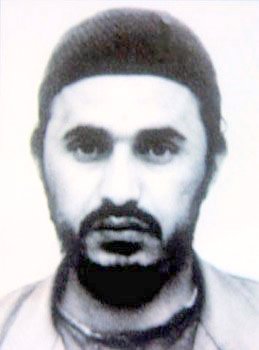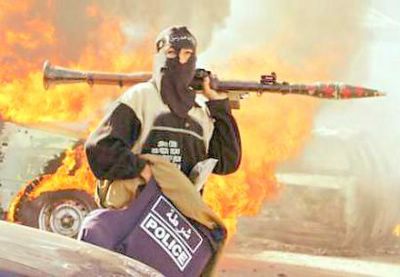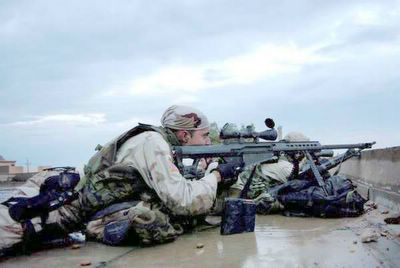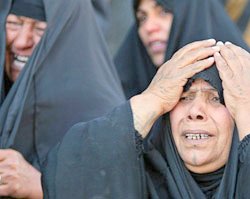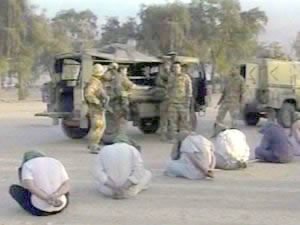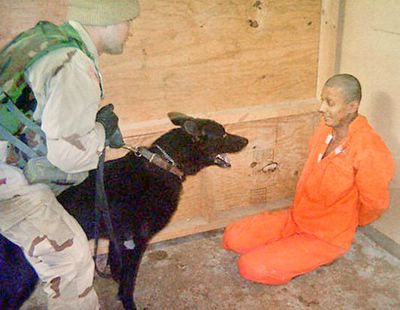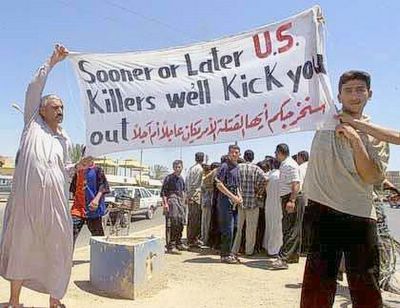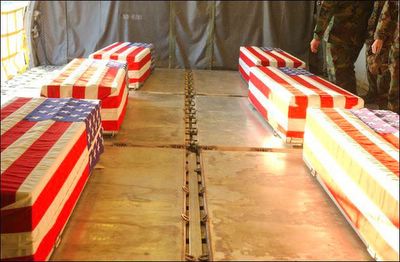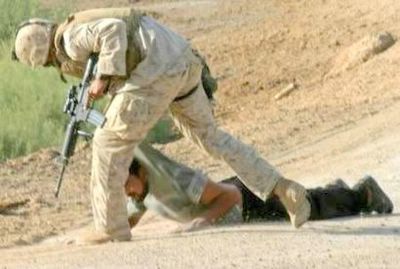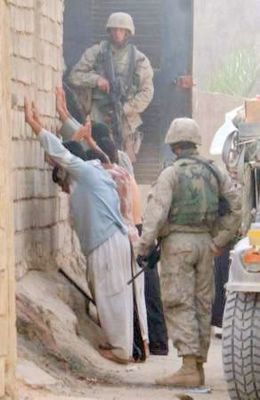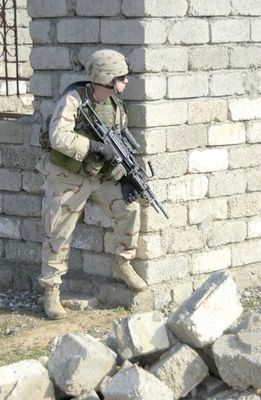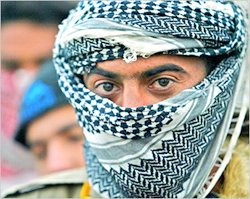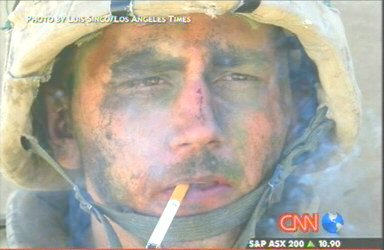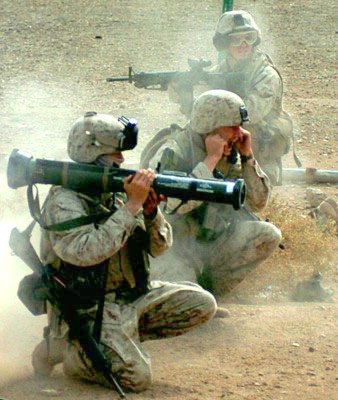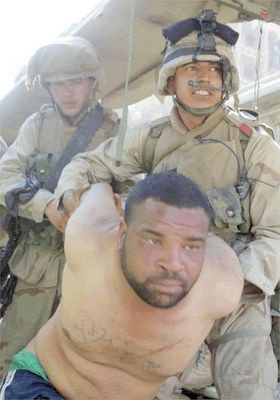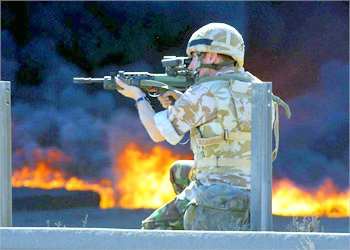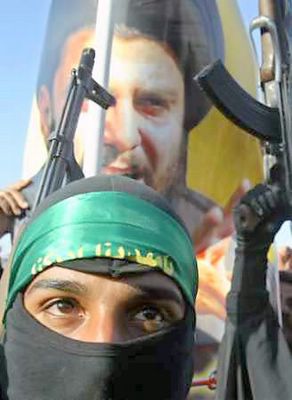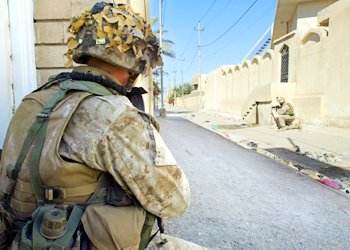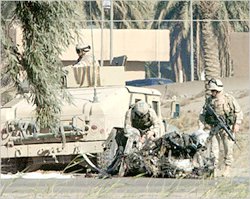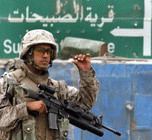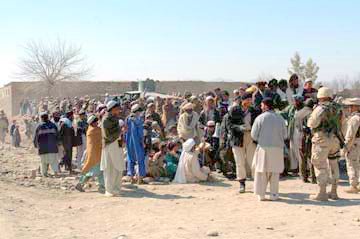
Story and photos by Capt. Juanita Chang, Combined Task Force Thunder Public Affairs Officer
KHOST PROVINCE, Afghanistan Nearly 1,000 people came to Khilbasat village here to see if the announcements they heard over a loud speaker were true. They heard broadcasts that Coalition forces would be providing free medical care for local residents. Neither they, nor some of the Coalition Soldiers could believe what they saw.
The people are really happy that Americans are here today, said a local boy in broken English, talking over the stone wall to a Marine pulling guard duty.
I am from a third world country, but this was very shocking for me to see, said Spc. Thia T. Valenzuela, who moved to the United States from Guyana in 2001, joined the United States Army the same year, and now calls Decatur, Ga., home.
While I was de-worming them I was looking at their teeth. They were all rotten and so unhealthy, said Valenzuela, a dental assistant from Company C, 725th Main Support Battalion stationed out of Schofield Barracks, Hawaii.
It was so shocking to see all the children not wearing shoes, Valenzuela said, this being her first time off a military base, or outside the wire as service members in Afghanistan say. It was freezing cold and there were so many who were barefooted.
It was a culture shock, said Sgt. Teresa A. Trevino, of Corpus Christi, Texas. The females have no rights. They cant say or do anything without a male family member, she said. This was also Trevinos fist time outside the wire. She is also assigned to Company C, 725th Main Support Battalion out of Schofield Barracks, Hawaii.
The majority of patients seen were treated for upper respiratory tract infections. Additionally, every person over age two was given a de-worming treatment. Worms are a very common ailment here and many complained of stomach aches and diarrhea that has lasted for years, signs that they their worms have gone untreated for years.
Most people go to Walgreens and buy medicine like Motrin, but these people simply do not have that option. It is not available and they do not have money, said 1st Lt. Julie A. Sheets, of Grove City, Ohio. Sheets is a Physicians Assistant assigned to Company C, 725th Main Support Battalion from Schofield Barracks, Hawaii and was the senior female medical practioner on site.
It is customary in Afghanistan for female Afghans to only be seen by female medical personnel. In some cases, Afghan women will die of ailments before being seen by a male doctor due to the strict culture.
Sheets said this village also had a higher rate of leishmaniasis than usual. Leishmaniasis is a skin disease caused by an insect spread parasite. It causes lesions that fester and leave disfiguring scars.
For us to go out and show good will that we are here to treat their families and their children shows the people here that we are here to help them, said Master Sgt. Edith Horn, the Officer in Charge of the mission, assigned to the Khost Provincial Reconstruction Team.
This was a key location to conduct the mission because of the influence of the people who live in the area, Horn said. There is still negative influence in that area.
The smile on the childrens faces and the thanks that the people give us showed us that they were very thankful and that we were well received, said Horn, an Army Reservist and full-time police officer in Indianapolis.
During this single-day mission, the team provided medical care to 338 adult males, 73 women, and 249 children. They also distributed 450 kg of rice, 500 kg of beans, and 64 kg of cooking oil to people in need.
Dr. Rasul, the director of the Mamoor Ali Jan Hospital in Khost Province, was also on scene for the Cooperative Medical Assistance. Dr. Rasul (who goes by only one name, as is customary in Afghanistan) said he enjoys working with American doctors and he learns much from them. He also provided local insight into the problems experienced by the villagers.
Some people literally walked all day, barefoot in temperatures in the 40s, to seek medical care. There are no paved roads in Sabari District, nor many cars. Many came on crutches, and some with prosthetics, evidence of the decades of war and land mines polluting their country.
The medical assistance and assessment visit, coordinated by the Provincial Reconstruction Team located in Khost Province, is essential to identifying illnesses in a particular area so they can address the issues. There are currently 19 PRTs throughout Afghanistan. Each PRT conducts civil assessments and assists the local government with reconstruction and security in each region.

